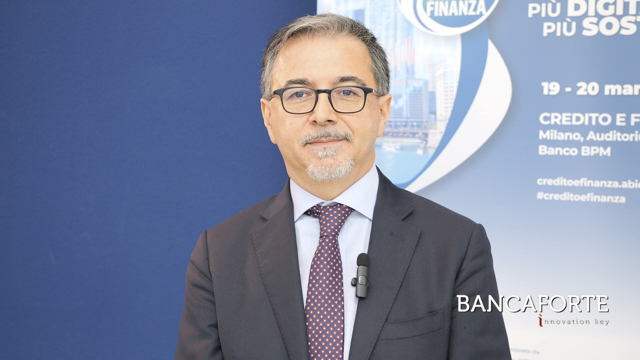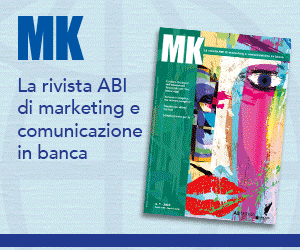18 Aprile 2024 / 17:35
Trend topics
Opinioni
Pagamenti
Carte di pagamento, proposta Ue mette a rischio la crescita del cashless in Italia
-
15 Luglio 2014
Geoffrey Manne, Julian Morris e Todd Zywicki* analizzano l'impatto negativo sui consumatori e sul mercato che potrebbe derivare dalla riduzione delle “interchange fees” sulle transazioni con carte. Il Parlamento europeo ha votato ad aprile una proposta che va in questa direzione, ma le esperienze di Usa, Canada, Spagna e Australia...
Payment cards are a marvel of modern civilization. Both consumers and retailers benefit from payments that are safer and quicker than cash or cheque – and from the fact that consumers are not limited by the amount of cash in their wallet or bank account. Although Italians have not yet reaped the full benefit of such cards, adoption has increased considerably in the past few years. Unfortunately, a proposed EU regulation would upset this system, making electronic payments less attractive for consumers and slowing Italy's move toward a modern cashless society.
In April, the European Parliament voted for a proposal to regulate the transaction charges paid to banks and payment card issuers when consumers pay with a debit or credit card. The premise of the regulation is that reducing these “interchange fees” will reduce the fees paid by merchants, who will pass on savings to consumers. But the experience with similar regulations in the US, Canada, Spain and Australia suggests that consumers are unlikely to see much in the way of cost savings. Meanwhile, they are likely to see increases in other bank and card charges.
 Julian Morris, Vice President of Research Reason Foundation, Visiting Professor University of Buckingham and Senior Fellow International Center for Law and Economics
Julian Morris, Vice President of Research Reason Foundation, Visiting Professor University of Buckingham and Senior Fellow International Center for Law and Economics
The US fee caps have benefited large retailers, who have seen lower fees. But they don’t seem to have passed these on to consumers. Smaller retailers, by contrast, have seen practically no reduction in fees. We estimated that in the year after the Durbin Amendment was implemented, small and medium size merchants on average saw a saving of only 0.02% of the transaction, whereas the 20 largest merchants saw savings of 0.7% – thirty times as much! So the fee cap has made smaller merchants less competitive.
Regulated US banks (i.e. those with at least $10 billion in assets) lost about $8 billion in interchange fee revenue in the first year alone. They made up those losses in part by reducing the availability of free current accounts. After rising dramatically from the late 1990s onwards, in line with the rise in debit card transactions, availability of free accounts fell precipitously following the passage of the Durbin Amendment. One broad and reliable survey found that the number of banks (both regulated and exempt) offering free accounts fell by half between 2009 and 2013, from 76% to 38%, mainly in areas serving poorer consumers. Another study found that between 2011 and 2012, the proportion of regulated banks offering free accounts fell from 51% to 27%, while the
proportion of exempt banks offering free accounts rose from 37% to 44%. Regulated banks also
raised the minimum average balance necessary to qualify for a free account and more than doubled average monthly bank charges.
So, in the US, debit interchange fees benefited large merchants, had no discernible impact on consumer prices, likely harmed smaller merchants and demonstrably harmed consumers by increasing the cost of banking at regulated banks. We estimate that the fee caps in the US have imposed a net cost on consumers of around €1.2 billion per year, most of it falling on the poor. A 2012 survey by the U.S. Federal Deposit Insurance Corporation found that the number of
Americans without bank accounts increased by nearly 10% between 2009 and 2011.While there were clearly other factors, the increase in bank fees imposed on poorer customers in preparation for the implementation of the Durbin Amendment likely played a significant role.
Regulated US banks were able partly to mitigate the effects of the fee cap by encouraging customers to switch to unregulated alternatives, such as credit cards. In Australia and Spain, this option wasn’t available because the caps were applied to all bank issued debit and credit cards. As a result, in those countries, consumer uptake of payment cards appears to have grown more slowly than it otherwise might have done and more consumers continue to transact using cheques and cash, which tend to be more expensive for merchants. Cash transactions are also easier to keep off the books and hence out of the prying eyes of the taxman.
Based on the experience of the U.S. and elsewhere, the interchange fee controls will almost certainly lead to increases in either card fees or bank account fees, or – quite likely – both. They would also reduce the ability of issuing banks to offer rewards and rebates, which are funded through the interchange fee. And they would reduce the ability of issuing banks and the card networks to recoup investments in security and innovation.
The consequences of increasing bank account fees could be seriously detrimental to Italian consumers and entrepreneurs. A 2012 survey found that approximately 30% of Italians over 15 years of age did not have bank accounts. That is worrying because without a bank account it is far more difficult – if not impossible – to obtain a mortgage or other secured loan. The “unbanked” thus face higher costs of capital and are less able to start or fund ongoing entrepreneurial activity. By raising the costs of having a bank account, the interchange fee controls would perpetuate poverty.
In the past decade, Italians have increased their use of electronic payments from 40% to 48%. To encourage this trend, the Italian government recently issued a requirement that all retail outlets have point of sale terminals for payment cards. It did this in part because electronic transactions can be tracked and traced – and therefore taxed – so by increasing the proportion of transactions made electronically, it would reduce the shadow economy, which is estimated to represent about 20% of Italy’s GDP, and increase tax revenue. But controls on interchange fees would likely undermine these efforts and could even reverse the trend. If, in response to the controls, card issuers charge higher card maintenance fees, fewer people are likely to find such cards attractive. Meanwhile, a reduction in rewards and rebates would discourage both card ownership and use of cards.
To make matters worse, the interchange fee controls would undermine incentives to invest in innovations, such as contactless and mobile payment systems. The former has the potential to speed up transactions – a significant benefit to merchants and consumers alike – while the latter has the potential to replace many transactions that are currently made using cash. Such innovations could significantly increase the proportion of electronic transactions, so it would be a great pity if they are inhibited by a lack of financial incentives on the part of issuing banks and payment card networks to invest in their development.
A study by the European Central Bank found that for an average European country, a switch from
paper (cheque and cash) to electronic payments would save approximately one percent of GDP. For Italy, whose proportion of electronic payments is below the EU average, the savings would likely be greater. By slowing the shift towards electronic payments, the interchange fee controls would thus directly harm Italy’s economy.
Whereas the US fee cap cut debit interchange fees by 50%, the proposed EU regulation would apply to every kind of payment card and would cut fees by 70%. As such, its consequences would likely be far worse for consumers, with higher bank and card fees and less innovation. While
merchants may benefit from lower fees, experience elsewhere suggests they would be unlikely to pass on much if any of those savings. Moreover, merchants would suffer from lower and slower take-up of electronic payments by consumers. Meanwhile, the Italian government would not experience the benefit of being able to trace – and therefore tax – a larger proportion of payments. In sum, it is possible that nearly all parties – with the possible exception of a small number of large retailers – would lose. But the biggest losers would be the poor.
*Manne, Morris and Zywicki are the authors of Price Controls on Payment Card Interchange Fees, published on the 5th June by the International Center for Law and Economics (
http://www.laweconcenter.org
)
.
IF Regulation, la lezione americana
A margine di SPIN 2014, dove è stato relatore, il prof. Julian Morris dell'Università di Buckingham ha rilasciato una videointervista a Bancaforte nella quale analizza gli effetti registrati negli USA dopo la regolamentazione delle interchange fees introdotta con il “Durbin Amendment” (vedi qui la videointervista integrale).
ALTRI ARTICOLI
Sicurezza
La sicurezza in banca è sempre più cyber
Generative AI, Quantum computing, crittografia, data science: le innovazioni tecnologiche come strumenti di difesa e resilienza per le banche e le...
Banca
Premio ABI per l’innovazione nei servizi bancari 2024: tutti i vincitori
Sono 8 i progetti premiati dalla Giuria tra gli oltre 60 presentati dalle banche italiane quest'anno. Assegnate anche tre Menzioni Speciali
Sicurezza
Jurgens (WEF): Colmare lo skills gap primo obiettivo per aziende cyber-resilienti
Dall’ultimo Global Cybersecurity Outlook del World Economic Forum emerge la fragilità critica delle aziende, soprattutto medio-piccole, rispetto...

L'evento promosso da ABI e organizzato da ABIEventi per consolidare gli interventi svolti...

Credito e Finanza è l’appuntamento promosso da ABI dedicato al Credito a Famiglie e Imprese e al Mercato...

Il Salone dei Pagamenti è il più importante appuntamento nazionale di riferimento su Pagamenti e Innovazione...
Bancaforte TV

"Per avvicinare le imprese al mercato dei capitali, bisogna continuare a semplificare le regole e le...
















